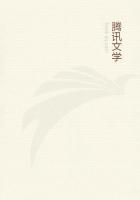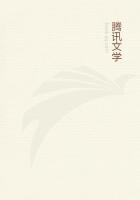Let it be admitted,too,that King Arthur,of the "Idylls,"is like an Albert in blank verse,an Albert cursed with a Guinevere for a wife,and a Lancelot for friend.The "Idylls,"with all their beauties,are full of a Victorian respectability,and love of talking with Vivien about what is not so respectable.One wishes,at times,that the "Morte d'Arthur"had remained a lonely and flawless fragment,as noble as Homer,as polished as Sophocles.But then we must have missed,with many other admirable things,the "Last Battle in the West."People who come after us will be more impressed than we are by the Laureate's versatility.He has touched so many strings,from "Will Waterproof's Monologue,"so far above Praed,to the agony of "Rizpah,"the invincible energy of "Ulysses,"the languor and the fairy music of the "Lotus Eaters,"the grace as of a Greek epigram which inspires the lines to Catullus and to Virgil.He is with Milton for learning,with Keats for magic and vision,with Virgil for graceful recasting of ancient golden lines,and,even in the latest volume of his long life,"we may tell from the straw,"as Homer says,"what the grain has been."There are many who make it a kind of religion to regard Mr.Browning as the greatest of living English poets.For him,too,one is thankful as for a veritable great poet;but can we believe that impartial posterity will rate him with the Laureate,or that so large a proportion of his work will endure?The charm of an enigma now attracts students who feel proud of being able to understand what others find obscure.But this attraction must inevitably become a stumbling-block.
Why Mr.Browning is obscure is a long question;probably the answer is that he often could not help himself.His darkest poems may be made out by a person of average intelligence who will read them as hard as,for example,he would find it necessary to read the "Logic"of Hegel.There is a story of two clever girls who set out to peruse "Sordello,"and corresponded with each other about their progress."Somebody is dead in 'Sordello,'"one of them wrote to her friend."I don't quite know who it is,but it must make things a little clearer in the long run."Alas!a copious use of the guillotine would scarcely clear the stage of "Sordello."It is hardly to be hoped that "Sordello,"or "Red Cotton Night Cap Country,"or "Fifine,"will continue to be struggled with by posterity.But the mass of "Men and Women,"that unexampled gallery of portraits of the inmost hearts and secret minds of priests,prigs,princes,girls,lovers,poets,painters,must survive immortally,while civilization and literature last,while men care to know what is in men.
No perversity of humour,no voluntary or involuntary harshness of style,can destroy the merit of these poems,which have nothing like them in the letters of the past,and must remain without successful imitators in the future.They will last all the better for a certain manliness of religious faith--something sturdy and assured--not moved by winds of doctrine,not paltering with doubts,which is certainly one of Mr.Browning's attractions in this fickle and shifting generation.He cannot be forgotten while,as he says -"A sunset touch,A chorus ending of Euripides,"remind men that they are creatures of immortality,and move "a thousand hopes and fears."If one were to write out of mere personal preference,and praise most that which best fits one's private moods,I suppose I should place Mr.Matthew Arnold at the head of contemporary English poets.
Reason and reflection,discussion and critical judgment,tell one that he is not quite there.
Mr.Arnold had not the many melodies of the Laureate,nor his versatile mastery,nor his magic,nor his copiousness.He had not the microscopic glance of Mr.Browning,nor his rude grasp of facts,which tears the life out of them as the Aztec priest plucked the very heart from the victim.We know that,but yet Mr.Arnold's poetry has our love;his lines murmur in our memory through all the stress and accidents of life."The Scholar Gipsy,""Obermann,""Switzerland,"the melancholy majesty of the close of "Sohrab and Rustum,"the tenderness of those elegiacs on two kindred graves beneath the Himalayas and by the Midland Sea;the surge and thunder of "Dover Beach,"with its "melancholy,long-withdrawing roar;"these can only cease to whisper to us and console us in that latest hour when life herself ceases to "moan round with many voices."My friends tell me that Mr.Arnold is too doubting,and too didactic,that he protests too much,and considers too curiously,that his best poems are,at most,"a chain of highly valuable thoughts."It may be so;but he carries us back to "wet,bird-haunted English lawns;"like him "we know what white and purple fritillaries the grassy harvest of the river yields,"with him we try to practise resignation,and to give ourselves over to that spirit "Whose purpose is not missed,While life endures,while things subsist."Mr.Arnold's poetry is to me,in brief,what Wordsworth's was to his generation.He has not that inspired greatness of Wordsworth,when nature does for him what his "lutin"did for Corneille,"takes the pen from his hand and writes for him."But he has none of the creeping prose which,to my poor mind,invades even "Tintern Abbey."He is,as Mr.Swinburne says,"the surest-footed"of our poets.He can give a natural and lovely life even to the wildest of ancient imaginings,as to "these bright and ancient snakes,that once were Cadmus and Harmonia."Bacon speaks of the legends of the earlier and ruder world coming to us "breathed softly through the flutes of the Grecians."But even the Grecian flute,as in the lay of the strife of Apollo and Marsyas,comes more tunably in the echo of Mr.Arnold's song,that beautiful song in "Empedocles on Etna,"which has the perfection of sculpture and the charm of the purest colour.It is full of the silver light of dawn among the hills,of the music of the loch's dark,slow waves among the reeds,of the scent of the heather,and the wet tresses of the birch.
Surely,then,we have had great poets living among us,but the fountains of their song are silent,or flow but rarely over a clogged and stony channel.And who is there to succeed the two who are gone,or who shall be our poet,if the Master be silent?That is a melancholy question,which I shall try to answer (with doubt and dread enough)in my next letter.{1}














